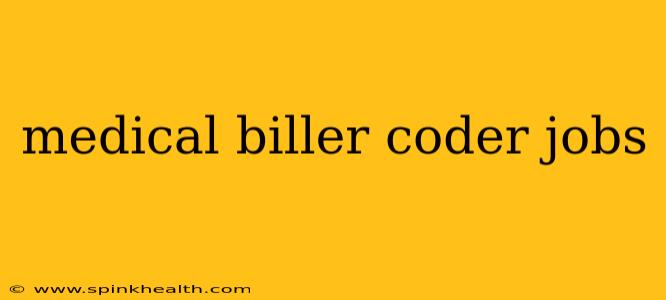The world of healthcare is vast and complex, but behind the scenes, a crucial team ensures the smooth operation of hospitals, clinics, and doctor's offices. This team includes the unsung heroes: medical billers and coders. These professionals play a vital role in the financial health of healthcare organizations, and the demand for skilled medical billers and coders is consistently high. If you're intrigued by the blend of healthcare and finance, a career as a medical biller and coder might be your perfect fit. Let's delve into this fascinating field.
My name is Alex, and I've spent over a decade in healthcare administration, witnessing firsthand the importance of accurate medical billing and coding. I'm excited to share my insights and help you navigate this rewarding career path.
What Does a Medical Biller and Coder Do?
Imagine being the translator between the medical world and the insurance companies. That's essentially what medical billers and coders do. They are the financial gatekeepers, ensuring that healthcare providers receive payment for the services they provide. This involves a meticulous process:
-
Medical Coders: These professionals translate medical diagnoses, procedures, and services into standardized alphanumeric codes (like ICD-10 and CPT codes). Think of them as expert translators, ensuring accurate and consistent communication of medical information. Their accuracy is paramount for proper reimbursement.
-
Medical Billers: Once the codes are in place, medical billers prepare and submit claims to insurance companies and patients. They follow up on outstanding claims, handle denials, and ensure timely payments. They act as the financial advocates for the healthcare provider.
Many professionals perform both roles, hence the common title "Medical Biller and Coder." While the skills overlap, coding often requires a deeper understanding of medical terminology and anatomy.
What are the Required Skills for a Medical Biller Coder Job?
This career requires a unique blend of skills:
-
Strong attention to detail: Accuracy is non-negotiable in medical billing and coding. One small error can lead to significant financial consequences.
-
Knowledge of medical terminology and anatomy: Understanding medical procedures and diagnoses is crucial for accurate coding.
-
Proficiency in medical billing and coding software: Many different software programs exist, and familiarity with them is essential.
-
Excellent communication skills: Billers and coders often interact with doctors, nurses, insurance representatives, and patients. Clear and concise communication is key.
-
Problem-solving skills: Dealing with insurance denials and resolving billing issues requires strong problem-solving abilities.
What is the Job Outlook for Medical Billers and Coders?
The job outlook for medical billers and coders is excellent. The demand for these professionals continues to rise due to several factors:
-
Aging population: An increasing number of elderly individuals require more healthcare services, increasing the volume of billing and coding tasks.
-
Technological advancements: While technology assists with billing and coding, it also creates a need for professionals to manage and interpret the data.
-
Healthcare reform: Changes in healthcare regulations and insurance policies require skilled professionals to navigate the complex billing process.
How Much Do Medical Billers and Coders Make?
Salaries vary based on experience, location, and employer. However, the Bureau of Labor Statistics provides valuable data on average earnings for medical billers and coders. Many positions offer benefits packages as well, making it a financially stable career option.
What Education and Certification are Needed for a Medical Biller Coder Job?
While a formal degree isn't always mandatory, many professionals pursue certifications like Certified Professional Coder (CPC) or Certified Professional Biller (CPB) to demonstrate their expertise and improve their job prospects. Associate's degrees or certificates in medical billing and coding are also common pathways.
What is the Work Environment Like for Medical Billers and Coders?
Most medical billers and coders work in office settings within healthcare facilities, physician practices, or insurance companies. The work can be demanding, requiring meticulous attention to detail and the ability to meet deadlines. Many positions offer flexible work arrangements as well, creating a more adaptable work-life balance.
Is a Career as a Medical Biller and Coder Right for Me?
If you are detail-oriented, possess strong analytical skills, and enjoy a blend of healthcare and finance, a career as a medical biller and coder might be a perfect match. The field offers a promising future with excellent job prospects and the satisfaction of playing a vital role in the healthcare system. Remember to research different educational pathways and certification options to find the best fit for your goals. With dedication and the right training, you can embark on a successful and fulfilling career in this dynamic field.

